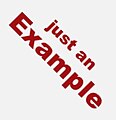Kitikmeot: Difference between revisions
No edit summary |
m (Undo revision 582583 by Blechingia (talk)) Tag: Undo |
||
| Line 157: | Line 157: | ||
== Geography == | == Geography == | ||
(WIP. Landscape. Climate. Where exactly is your country compared to others on the global map? Describe the landscape, plants and animals. Which mountains and rivers are important to include? Describe are the climate and seasons? How does geography determine where people live? Are there areas separated from one another? How about cities? This will greatly help you with the next part of history.) | (WIP. Landscape. Climate. Where exactly is your country compared to others on the global map? Describe the landscape, plants and animals. Which mountains and rivers are important to include? Describe are the climate and seasons? How does geography determine where people live? Are there areas separated from one another? How about cities? This will greatly help you with the next part of history.) | ||
Revision as of 15:28, 2 December 2022
Nation of Nanaviit | |
|---|---|
|
Flag | |
| Map of Kitikmeot Map of Kitikmeot | |
| Capital | Ataksak |
| Largest town | Elliði |
| Official languages | Eastern Yetis |
| Recognised national languages | Gotaish Meallángan |
| Ethnic groups | 92% Nanuvat 8% Grænaylket |
| Demonym(s) | Navitan |
| Government | Constitutional-Tribal Republic |
• Grand Chieftain | Ían Eegeesiak |
• Monarch | Sarah II |
| Legislature | Council of the Elders |
| Independence from Gotneska | |
• Nanuvat Peoples migrate | 48000 to 22000 BC |
• Independence from Gotneska | 11 May 1999 |
| Population | |
• 2020 estimate | 487,623 |
| Gini (2020) | 26.8 low |
| Time zone | UTC+1 (WAT) |
• Summer (DST) | UTC+2 (WAST) |
| Date format | dd-mm-yyyy (AD) |
| Driving side | right |
| Calling code | +25 |
| Internet TLD | .na |
This article is incomplete because it is pending further input from participants, or it is a work-in-progress by one author. Please comment on this article's talk page to share your input, comments and questions. Note: To contribute to this article, you may need to seek help from the author(s) of this page. |
Kitikmeot, officially known as the Nation of Kitikmeot, is a sovereign state in Argis on Eurth. It is bordered by Argic Ocean to the north, No Man's Land in the east, Gotneska, & Ulfheimr to the south, and No Man's Land in the west.
(1st paragraph. Name. Location. Borders. Approx population and size. Capital city.)
(2nd paragraph. Political system. Short history in 1 sentence. Link with present in 1 sentence. Head of state.)
(3rd paragraph. Economy in 2 sentences. International relations in 1 sentence.)
Etymology
(WIP. Where does your country's name come from? Most RL national names come from a small variety of choice. Some examples: land of a tribe (ex. France, Persia, Mongolia, Russia), characteristic geography (ex. Netherlands, India, Morocco), an old ruler or religious figure (ex. Philippines, San Marino, Europa, Saudi Arabia), the Latin description of a place (ex. Australia, Argentina, Liberia). How is the name pronounced? How is the name translated into other languages?)
History
The modern nation of Nanaviit came to be in April 1995, and later granted in January 1999 by Gotneskan King John II.
(WIP. How did your current country come to be? What were the country's previous incarnations? Was the country part of a union with a neighbour? Which events shaped the way the country is today?)
Geography
(WIP. Landscape. Climate. Where exactly is your country compared to others on the global map? Describe the landscape, plants and animals. Which mountains and rivers are important to include? Describe are the climate and seasons? How does geography determine where people live? Are there areas separated from one another? How about cities? This will greatly help you with the next part of history.)
Politics
(WIP. Government. Separation of powers. Who rules, how, and for how long? Political parties. What levels of government exist? How about the local level? Who makes the laws? Who deals out your justice? Which government services exist? What is the name of your police? How are the armed forces organised? Foreign affairs, alliances, membership of international organisations.)
Economy
(WIP. Employment. Exports and imports. International partners. Currency. Energy. Transportation. Science & technology. Unemployment numbers. Tourism. Media.)
Demographics
(WIP. Demographics. Ethnic groups. Social classes. Language. Education. Marriage. Religion. Healthcare. Diseases.)
Culture
(WIP. Cuisine. Literature. Visual arts. Art. Architecture. Entertainment. Music & Radio. Television. Cuisine. Local customs. Clothing. Morality. Sports. Stereotypes. Your national symbols such as the flag and national anthem. Public holidays and festivities.)



